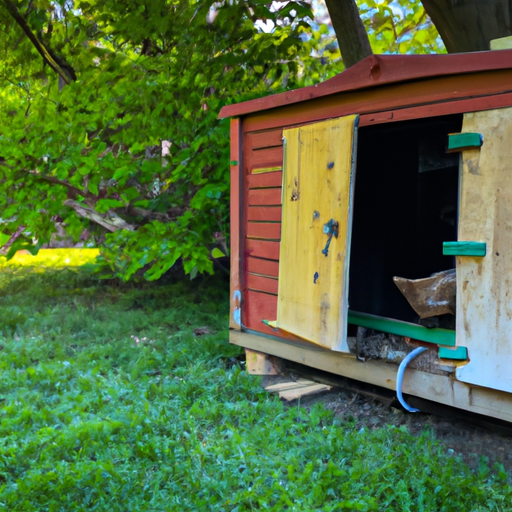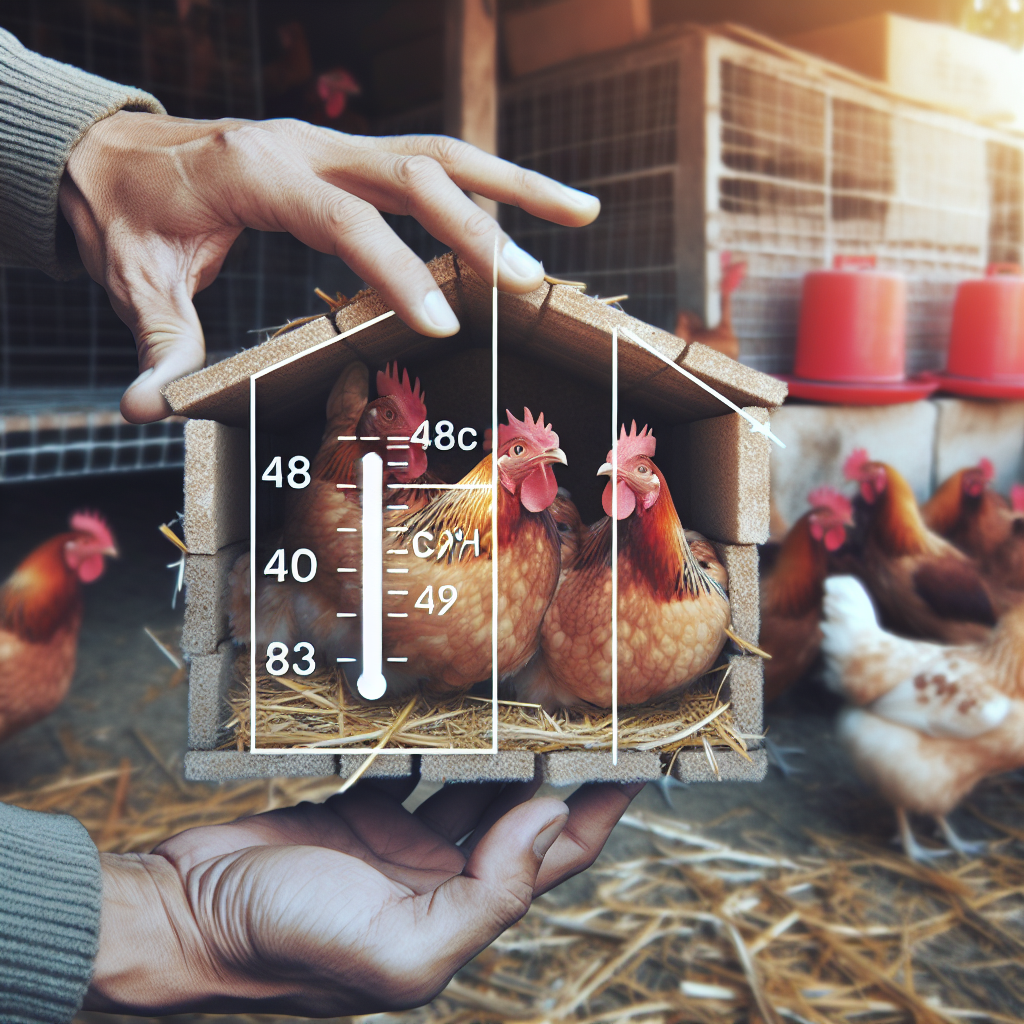So, you’re thinking about starting your own flock of chickens, huh? Well, you’ve come to the right place! Whether you’re a farm newbie or just looking to add some feathered friends to your backyard, the first steps of raising chickens can seem a bit overwhelming. But fear not, because in this article, we’ll guide you through the basics of getting started on this exciting and rewarding journey. From choosing the right breed to setting up the perfect coop, we’ve got you covered. By the time you finish reading, you’ll be clucking your way to a successful chicken-raising adventure in no time!
Choosing the Right Breed
Understanding Different Breeds
When starting your journey to raise chickens, it’s essential to understand the various breeds available. Different breeds have unique characteristics, such as size, egg-laying capacity, temperament, and resistance to certain diseases. Take the time to research and learn about the breeds that best suit your needs and preferences.
Considering Your Purpose
Before choosing a breed, consider your purpose for raising chickens. Are you primarily interested in fresh eggs, meat production, or even showing at poultry exhibitions? Each breed has its strengths, and choosing the right breed for your purpose will ensure a successful and fulfilling experience.
Researching Breeds Online
The internet is a valuable resource when researching chicken breeds. Numerous websites provide detailed information on different breeds, including their characteristics, temperament, and recommended care. Take advantage of online resources to gather as much information as possible before making a decision.
Visiting Local Farms or Hatcheries
While online research is helpful, visiting local farms or hatcheries can provide valuable hands-on experience and opportunities to interact with various breeds. Observing the chickens in person can help you assess their size, behavior, and overall suitability for your needs. Local farmers and hatchery owners can also provide valuable insights and advice based on their own experiences.
Building a Suitable Coop
Determining Coop Size
When building a coop, it’s crucial to consider the size, as it directly impacts the well-being of your chickens. Each chicken requires adequate space to move around comfortably and engage in natural behaviors. A general rule of thumb is to provide at least 4 square feet of floor space per chicken and additional space for roosting and nesting areas.
Designing the Layout
The layout of your coop should be carefully planned to maximize efficiency and ease of maintenance. Consider factors such as easy access to nesting boxes, roosting bars, and a separate area for feeding and watering. Proper ventilation and natural lighting are also essential considerations to promote a healthy environment.
Ensuring Sufficient Ventilation
Good ventilation is critical for maintaining optimal air quality inside the coop. Proper airflow helps to remove excess moisture, prevent the buildup of harmful gases, and reduce the risk of respiratory diseases. Install windows, vents, or even exhaust fans to ensure adequate ventilation while keeping drafts to a minimum.
Building a Secure Structure
Predators pose a significant threat to the safety and well-being of your chickens. To protect your flock, it’s essential to build a coop with sturdy walls, a secure roof, and predator-proof fencing. Use quality materials and ensure that there are no gaps or weak points that could allow predators to enter.
Adding Nesting Boxes and Roosting Bars
Nesting boxes provide a private and comfortable space for hens to lay their eggs. These should be designed and placed in a way that makes them easily accessible for egg collection and cleaning. Roosting bars, on the other hand, offer a comfortable elevated perch for the chickens to rest on at night. Provide enough roosting space to accommodate all your chickens comfortably.
Preparing the Environment
Choosing the Right Location
Selecting the right location for your chicken coop is essential. Look for an area that provides ample sunlight, good drainage, and protection from harsh weather conditions. Avoid low-lying areas prone to flooding or areas near trees that may pose a threat from falling branches.
Providing Adequate Space
Besides the coop itself, it’s important to ensure that your chickens have enough exercise space. Allocate a secure outdoor area for them to roam, scratch, and forage, as this is vital for their physical and mental well-being. Allow a minimum of 10 square feet per chicken in the outdoor run to provide ample space for exercise.
Clearing the Area of Hazards
Before introducing your chickens to their new environment, make sure to remove any potential hazards from the surrounding area. This includes removing poisonous plants, sharp objects, and any toxic chemicals that could harm your flock. Regularly inspect the area for potential hazards to ensure the safety of your chickens.
Fencing the Perimeter
Installing fencing around the perimeter of your outdoor run is essential to keep your chickens safe and minimize the risk of predators. The fence should be tall enough to prevent chickens from flying over and sturdy enough to withstand potential threats. Consider burying the fence at least a foot into the ground to deter digging predators.
Establishing a Predator-Proof Barrier
In addition to perimeter fencing, it’s important to establish a predator-proof barrier around the coop itself. This can include burying hardware cloth around the coop’s foundation to prevent burrowing predators, ensuring all windows and openings are securely covered, and using locks or latches that predators cannot easily manipulate.
Procuring and Caring for Chicks
Deciding Between Chicks and Adult Birds
One of the first decisions to make is whether to get chicks or adult birds. Chicks require more attention and care but provide the opportunity to bond with your chickens from a young age. Adult birds, on the other hand, are already established and may require less intensive care. Consider your experience level and preferences when making this decision.
Finding a Reputable Supplier
When purchasing chicks or adult birds, it’s crucial to find a reputable supplier. Look for suppliers who prioritize the health and well-being of their chickens, maintain clean and sanitary conditions, and provide proper vaccination protocols. Seek recommendations from experienced chicken keepers or local poultry associations.
Selecting Healthy Chicks
If you opt for chicks, ensure that they come from a healthy and disease-free source. Look for active, alert, and clean chicks with bright eyes and smooth, fluffy feathers. Avoid chicks that show signs of illness or weakness. It’s also important to choose the right breed for your specific needs and preferences.
Preparing a Brooder
Before bringing chicks home, you’ll need to prepare a brooder – a warm and safe environment for them to live in during the early weeks of their lives. A brooder can be a large cardboard box or a specially designed enclosure with a heat source, bedding, and easy access to food and water. Ensure the brooder is draft-free and predator-proof.
Providing Warmth and Proper Feeding
Chicks require warmth to thrive. Provide a heat source, such as a heat lamp or a brooder plate, to maintain a temperature of around 95°F (35°C) during the first week. Gradually reduce the temperature by 5°F (3°C) each week until they are fully feathered. Additionally, provide a high-quality chick starter feed and clean water at all times.
Feeding and Watering
Choosing the Right Feed
Selecting the appropriate feed for your chickens is crucial for their health and productivity. Choose a complete and balanced feed specifically formulated for the growth and development of chickens. Consider the age and purpose of your chickens, whether they are laying hens, meat birds, or growing pullets, as their nutrition requirements may vary.
Providing Access to Clean Water
Ensure your chickens have constant access to clean and fresh water. Water is essential for digestion, temperature regulation, and overall health. Regularly check waterers for cleanliness and refill them daily. Consider using waterers specifically designed for chickens to minimize contamination and keep the water clean for longer periods.
Ensuring a Balanced Diet
Alongside a complete feed, chickens can benefit from a diverse diet that includes kitchen scraps, fruits, vegetables, and even occasional treats like mealworms or small amounts of grains. However, it’s important to maintain a balance and avoid overfeeding or providing excessive treats, as this can lead to nutritional imbalances and health issues.
Understanding Feeding Patterns
Chickens have specific feeding patterns and behaviors. They are most active in the morning and will typically eat and drink shortly after sunrise. Ensure that feeders and waterers are accessible, even during their active scratching and foraging periods. Monitor their feeding patterns and adjust feeding times or quantity if necessary.
Avoiding Common Feeding Mistakes
Avoid common feeding mistakes that can harm your chickens. Do not provide spoiled or moldy food, as it can lead to illness. Avoid feeding excessive amounts of high-calorie treats, as this can cause obesity and reduced egg production. Additionally, keep feeders clean and free from contaminants to prevent the spread of diseases.
Caring for the Health and Well-being
Implementing Biosecurity Measures
Biosecurity refers to practices that prevent the introduction and spread of diseases in your flock. Implementing proper biosecurity measures can protect your chickens from contagious illnesses. This includes limiting outside visitors, quarantining new birds, regularly cleaning and disinfecting equipment, and practicing good hygiene before and after handling chickens.
Establishing a Vaccination Schedule
Vaccination plays a crucial role in preventing common poultry diseases. Consult with a veterinarian or experienced poultry supplier to understand the recommended vaccination schedule for your specific breed and geographical location. Ensure that vaccinations are administered correctly and at the appropriate age to maximize their effectiveness.
Regularly Cleaning and Maintaining the Coop
Maintaining a clean and hygienic coop is essential for the health and well-being of your chickens. Regularly remove soiled bedding, droppings, and any debris or pests that may accumulate. Disinfect the coop periodically to prevent the buildup of harmful bacteria or parasites. Provide fresh bedding to keep your chickens comfortable and reduce odor.
Monitoring Behavior and Identifying Signs of Illness
Regularly observe the behavior and appearance of your chickens to identify any signs of illness or distress. Monitor their appetite, activity level, and overall appearance. Look for abnormal behaviors or symptoms such as lethargy, decreased egg production, abnormal droppings, sneezing, coughing, or visible signs of injury. Seek veterinary care promptly if any unusual signs are observed.
Seeking Professional Veterinary Care
In case of any health concerns or emergencies, it’s crucial to have a reliable and experienced poultry veterinarian on hand. Establish a relationship with a veterinarian who specializes in poultry care, as they can provide guidance, perform routine check-ups, diagnose illnesses, and advise on treatments. Regular veterinary care can help prevent and manage potential health issues.
Managing Chicken Waste
Understanding Chicken Manure
Chicken manure is a byproduct of raising chickens and is a valuable resource when managed properly. It is rich in nutrients that can substantially improve soil quality, but it can also be overwhelming in large quantities. Understanding how to handle chicken manure is essential for maintaining a clean and healthy environment.
Building or Purchasing a Composting System
Composting chicken manure is an effective way to both manage waste and create nutrient-rich fertilizer for your garden. Consider building or purchasing a composting system specifically designed for chicken manure. This system should allow for proper aeration, moisture control, and temperature regulation to facilitate the decomposition process.
Composting Chicken Waste Safely
Composting chicken manure safely involves specific guidelines to prevent the spread of pathogens and reduce odors. Ensure that the compost pile reaches high temperatures during decomposition to kill any potential pathogens. Also, avoid using fresh manure directly on edible crops, as it may contain harmful bacteria. Allow the compost to fully mature before using it as fertilizer.
Utilizing Chicken Manure as Fertilizer
Chickens produce nitrogen-rich manure that can significantly benefit soil fertility. Once the chicken manure has decomposed into compost, apply it to your garden or vegetable beds to enrich the soil. The nutrients in the composted manure will gradually release, promoting healthy plant growth and reducing the need for synthetic fertilizers.
Disposing of Manure Properly
If you’re unable to compost or utilize the chicken manure, proper disposal is crucial. Avoid dumping it in sensitive areas such as water bodies or near residential areas. Check with your local waste management authorities for guidelines on proper disposal methods, such as designated waste facilities or agricultural recycling programs.
Handling Eggs
Collecting Fresh Eggs
Collecting fresh eggs from your flock is one of the exciting rewards of chicken keeping. Establish a routine for collecting eggs daily to ensure they remain fresh and clean. Provide easily accessible nesting boxes with comfortable bedding to encourage hens to lay their eggs in the designated area.
Cleaning and Storing Eggs
It’s important to handle eggs with care to maintain their quality and freshness. Only wash eggs if absolutely necessary, using warm water and mild soap. Once cleaned, store eggs in a cool and dry place away from direct sunlight. An egg carton or specifically designed egg storage container works well for organizing and protecting the eggs.
Determining Egg Freshness
To determine the freshness of an egg, perform a simple test called the float test. Fill a bowl with water and gently place the egg inside. If the egg sinks and lies horizontally, it is fresh. If it floats or stands upright, the air pocket inside has expanded, indicating age. Discard any eggs that float, as they may no longer be safe to consume.
Hatching Eggs or Incubating
If you’re interested in the fascinating process of hatching eggs, consider investing in an incubator. This allows you to control temperature and humidity levels while providing a safe environment for the eggs to develop. Carefully follow the instructions provided with the incubator and ensure that the eggs receive proper care and monitoring throughout the incubation process.
Solutions to Common Egg Issues
Occasionally, you may encounter issues with your eggs, such as thin shells, double yolks, or eggs with abnormalities. Thin-shelled eggs can be a result of nutritional imbalances or stress. Double yolks are usually a natural occurrence in young hens but can occasionally happen in older ones. Abnormal eggs can be caused by various factors, including genetic abnormalities or nutrient deficiencies. Regular observation, proper nutrition, and a healthy environment can help minimize these issues.
Integrating Chickens into Your Routine
Establishing a Daily Care Schedule
Caring for chickens requires establishing a daily routine that includes feeding, watering, and observing your flock. Determine a schedule that is convenient for you and your lifestyle, taking into account your work or school commitments. Consistency and routine provide security for your chickens and help maintain their health and well-being.
Planning for Vacations or Absences
When planning vacations or times away from home, it’s important to make arrangements for the care of your chickens. Find a trusted friend, neighbor, or family member who can take care of your flock in your absence. Provide clear instructions on feeding, cleaning, and any other specific requirements to ensure your chickens are well cared for.
Balancing Chickens with Other Responsibilities
Raising chickens requires time and commitment. Before bringing chickens into your life, consider your other responsibilities and ensure you can balance them effectively. Ensure that you have the necessary time and resources available to properly care for your flock, as neglecting their needs can lead to health issues and decreased productivity.
Involving Family Members in Care
Incorporating your family members in caring for the chickens can be an enjoyable and educational experience. Assign specific tasks to each family member based on their capabilities and interests. This creates a shared responsibility and fosters a sense of ownership and connection with the flock.
Enjoying the Rewards of Chicken Keeping
Raising chickens can be a fulfilling and rewarding experience. Enjoy the benefits of fresh eggs, companionship, and the simple joys of observing the natural behaviors of your flock. Take time to relax and appreciate the connection with nature that chicken keeping can bring to your life.
Connecting with the Chicken Community
Joining Local Poultry Associations
Connecting with local poultry associations or clubs is an excellent way to learn from experienced chicken keepers. These organizations often offer educational resources, workshops, and events that cater to all levels of expertise. By joining, you gain access to a network of knowledgeable individuals who can provide guidance and support.
Attending Chicken-Related Events and Workshops
Attend local events and workshops dedicated to chicken keeping. These events often feature expert speakers, demonstrations, and opportunities to network with other chicken enthusiasts. Not only will you gain valuable knowledge, but you’ll also meet like-minded individuals who share your passion for raising chickens.
Participating in Online Forums or Social Media Groups
Online forums and social media groups provide a convenient platform to connect with other chicken keepers from around the world. Joining these communities allows you to ask questions, share experiences, and learn from the collective wisdom of a diverse group of enthusiasts. Be respectful and contribute positively to create a welcoming and supportive environment.
Building Relationships with Other Chicken Keepers
Building relationships with other chicken keepers can be mutually beneficial. By fostering connections with fellow chicken enthusiasts, you can share knowledge, trade tips and advice, and even exchange or borrow equipment when needed. The chicken keeping community is often passionate and supportive, and nurturing these relationships can enhance your overall experience.
Sharing Experiences and Learning from Others
Don’t be afraid to share your own experiences and insights with other chicken keepers. By sharing your successes, challenges, and lessons learned, you contribute to the collective knowledge of the chicken keeping community. Similarly, be open to learning from others’ experiences, as each chicken keeper brings unique perspectives and approaches to the hobby.
In conclusion, starting your journey of raising chickens can be an exciting and rewarding endeavor. By choosing the right breed, building a suitable coop, preparing the environment, caring for chicks, feeding and watering, attending to health and well-being, managing waste, handling eggs, integrating chickens into your routine, and connecting with the chicken community, you can create a flourishing and thriving flock. Remember, patience, dedication, and the willingness to continuously learn are key to ensuring a successful and enjoyable chicken keeping experience.




